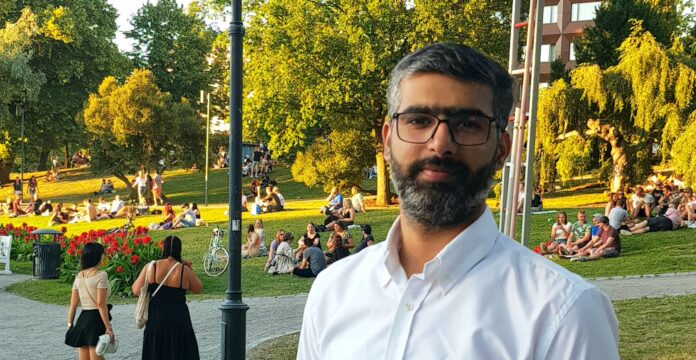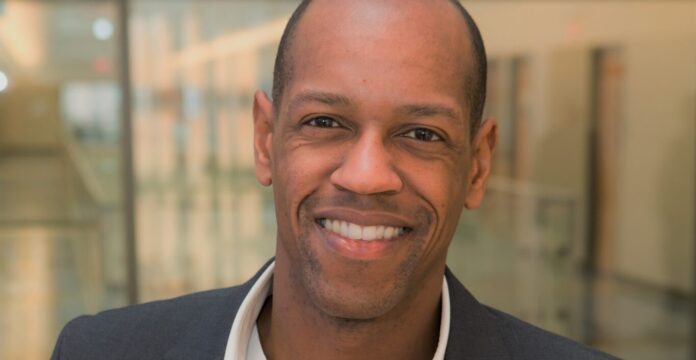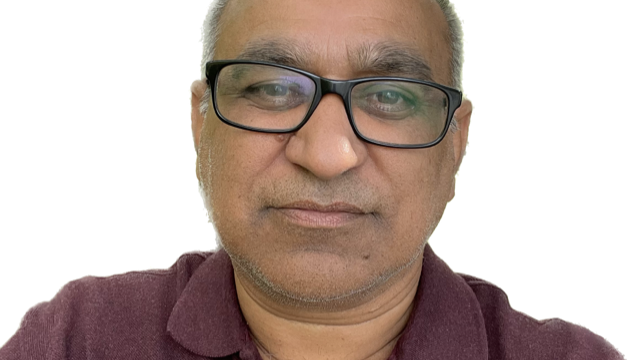Eeva Hintikka, second year student of Economics at the University of Vaasa. Member of the Executive Board of VYY, Career and International Affairs, and a Friend of the InnoLab.
Technopedia defines AI as “an area of computer science that emphasizes the creation of intelligent machines that work and react like humans.” But what does that actually mean, and how does it affect the lives of those who are not closely working among AI?
On Monday the 19th, we had the uttermost privilege to facilitate a discussion of the matter on hand. Since our Student Union is turning 50 this year, we at the Executive Board decided to approach different societal topics in the form of a series of lectures. In these events, we invite specialists to broaden our views and inspire discussion among the audience.
This time, we were honored by the company of the Minister of Economic Affairs, Mika Lintilä, Director of Digital Economy research platform, Heidi Kuusniemi, and Vaasa University’s Professor of Philosophy, Tommi Lehtonen. The discussion was hosted by Mari K Niemi, Director of InnoLab.
As said, we wanted to create a chance for everyone to understand more about AI. Is it simply a threat that will take our jobs, and in the end, control the whole of humankind? Or is it a tool that will help us develop the society and future we are now facing?
Minister Lintilä, a well-known spokesman of AI, talked about how we in Finland have a solid chance of becoming one of the world’s leading countries to utilize AI, if we now understand the possibilities it brings us. According to many researchers, AI provides us with new tools to boost our well-being. As the Minister pointed out, the only way to benefit from AI, is to have the courage of innovating and exploiting from the unknown. The potential AI has on improving the quality of life for so many, can be considered worth the investment.
After the inspiring speech, our guests had a panel discussion. During the discussion, it was hoped that the panelists would approach the matter from the views of their own expertise. We had made a choice of mainly concentrating on three different angles.
Firstly, we wanted to raise a question, whether it is even possible for Finland to rise in the field of AI, or has that train passed already? Secondly, how does AI affect the working life and discrimination? Is one of its side effects a broadening gap between the social classes? And thirdly, is AI in fact a dangerous concept that we should handle with delicacy?
Our participants seemed to feel quite eye- to eye when asked, if AI is a good and possibly even a mandatory way to stay in the heart of development. The needs of our society are constantly changing and AI can be used to respond to many of the upcoming challenges, such as the retirement of the baby-boomers and climate change.
Like Heidi Kuusniemi sharpened, as its best, AI is a great tool to work with. Still, there should be a clear goal to use it in a way that benefits a great scale of people. The so-called winner takes it all- phenomena can be seen as an unwanted threat to the further use of AI in the future. How can we make sure that innovating around AI does not only benefit a small group of people? Those, who now have the resources to develop it.
As stated in the panel, it is only natural that same as with every new innovation, questions about its consequences are, and more importantly, should be raised. However, fighting against what is coming, is the wrong way to face the future. The bloom of AI might even be the next Technological Revolution.
It is said that even if we develop AI to a point where it can be used to do some of the work that an actual human being is currently responsible for, AI will most likely never replace the human. In the end, qualities like good social skills, creativity and eagerness to learn, are those that an individual can benefit from. And as Tommi Lehtonen stated, in Finland we do have a bunch of well- educated doers.
Maybe the key in approaching the subject of AI is not after all whether it is a good or a bad thing. In my opinion, it is more about asking ourselves as students, scientists, academics and teachers, how can we use it in a way that does the most good for the most people? How can I further educate myself so that my knowledge meets the needs of the future?



